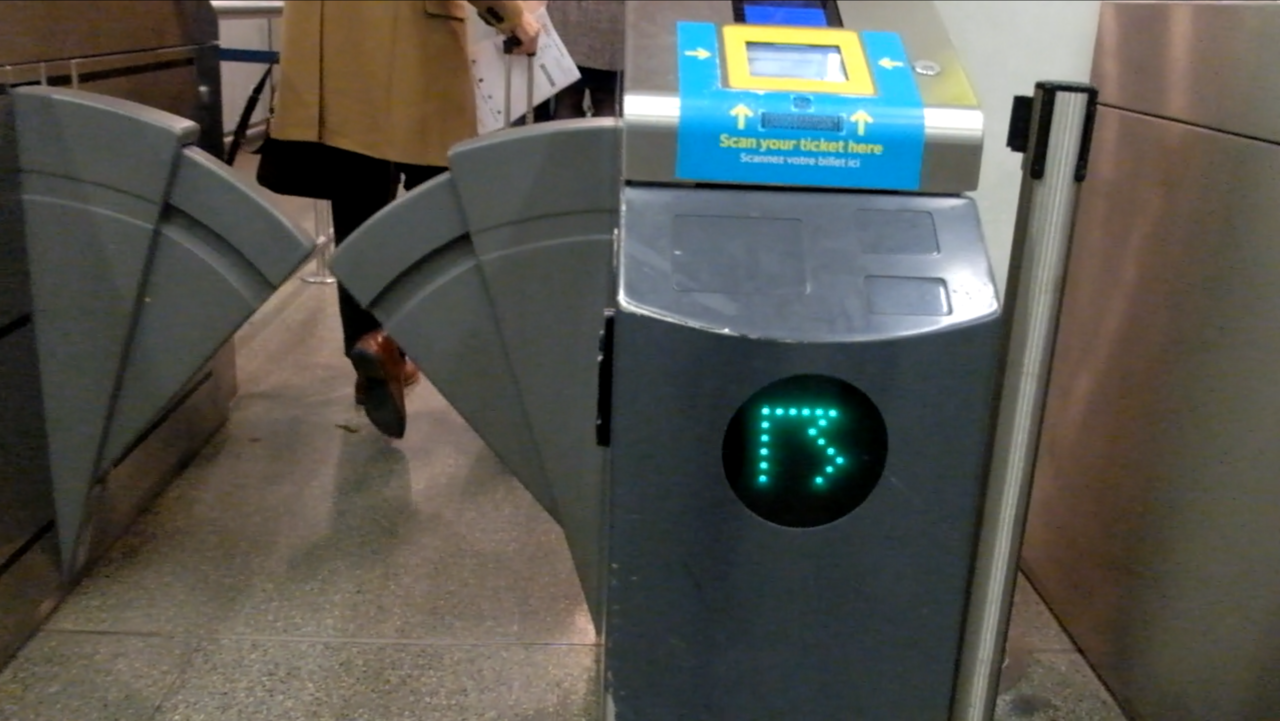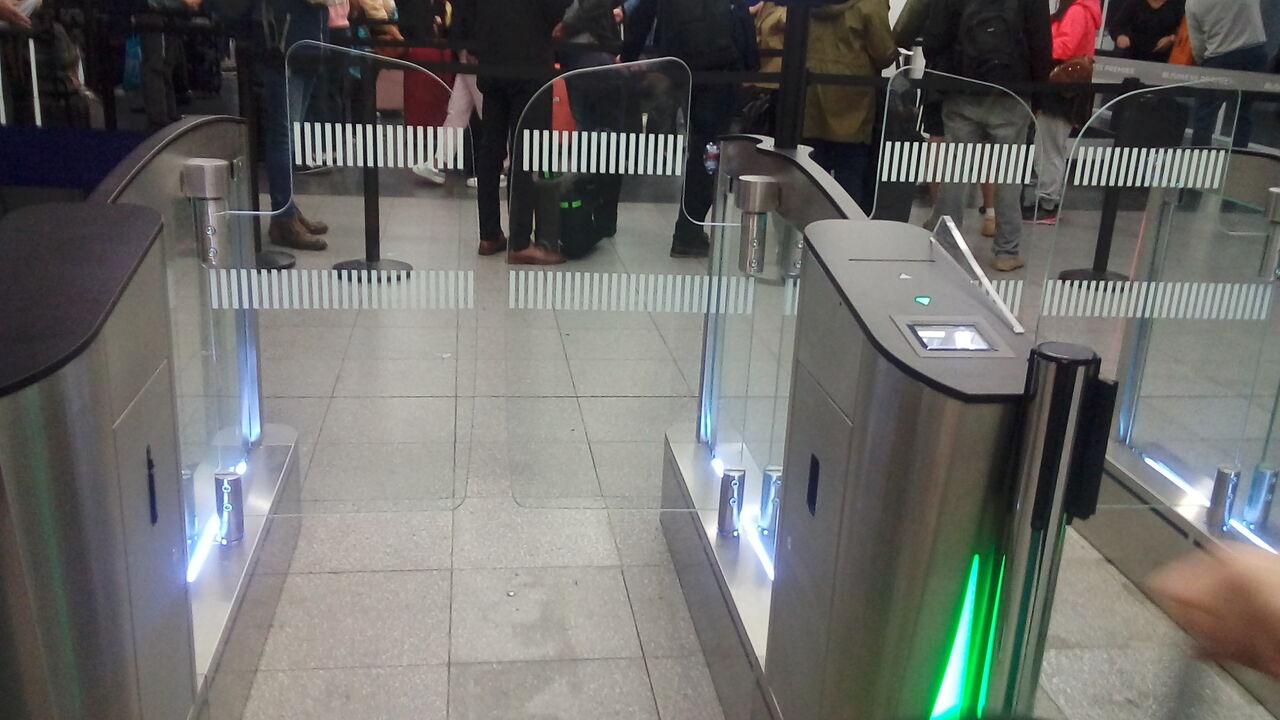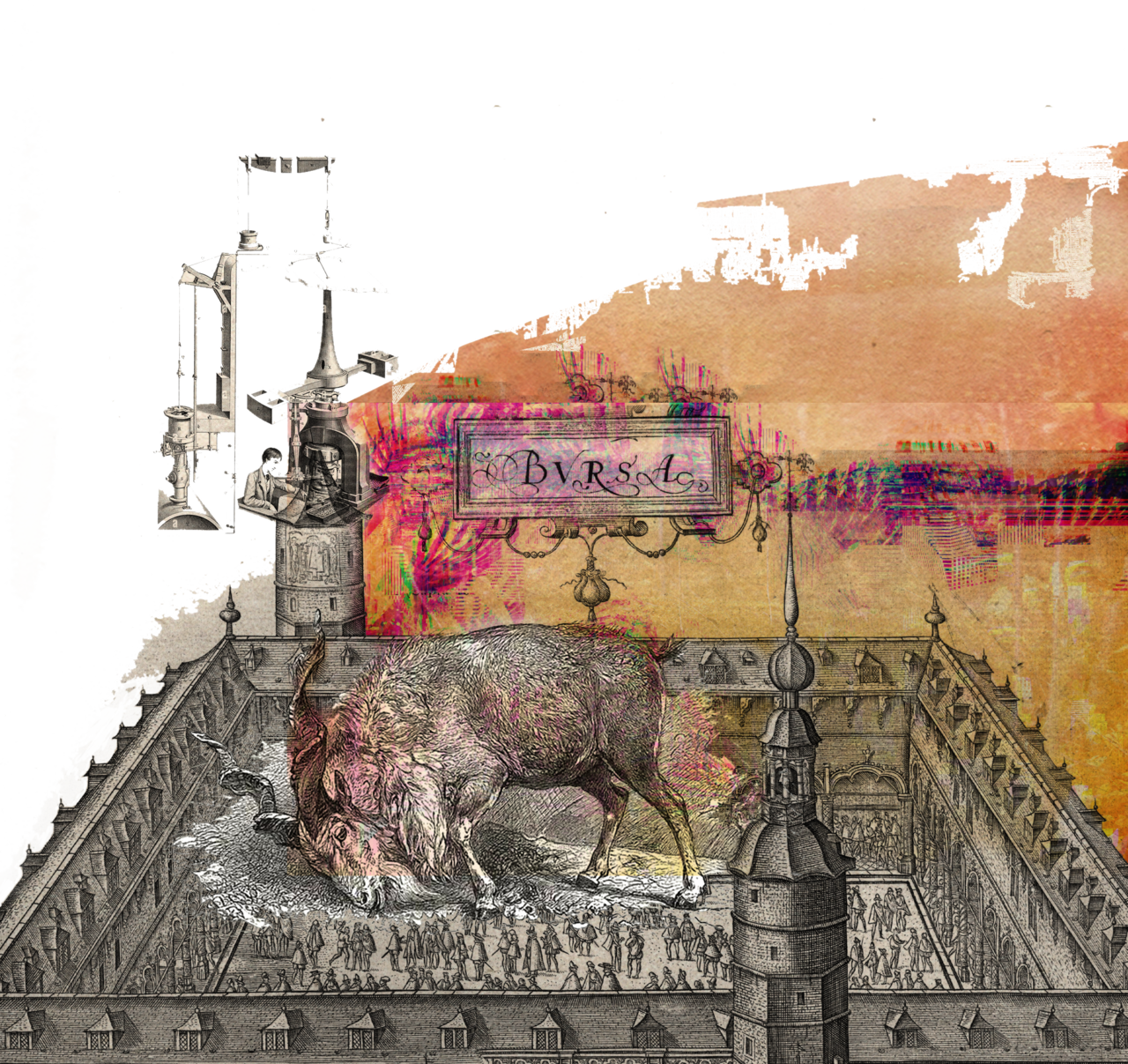Grey Skies Thinking
Concerning the Institute for Experiments with Business (Ibex).

The Institute for Experiments with Business (Ibex) is an emergent research entity situated within the FoAM network, with the mission to collect, cultivate, and report on experiments in and with business. Taking business as a vehicle for experiments may at first seem counter-intuitive. Those working in education or the arts (for example) may have experienced being swept up or dragged under by a tide of “business” vocabulary and values, encapsulated in the bonanza of the Creative Industries that positions creativity as a driver of economic growth. At the same time, the uneasy covenant that business-as-usual would maintain a habitable planet has unarguably failed. But business is widely understood and accessible; it operates in and across different configurations, collectives, shapes, and scales. It can be a Trojan horse, an avatar or exoskeleton in which to navigate the hostile yet contestable space that we hazily call “the economy”. Business presents a wealth of material contents as well as a container for them, in its fixtures and fittings, its administrative devices, and its corporate forms. For Ibex, these are not just subjects to study, but materials to experiment with and change.
Our interest with Ibex is to seize the experiment in business back from the tech start-ups — with their entrepreneurial tropes of “intelligent failure” and “out-of-the-box” thinking — and from a business world configured through a narrow set of coordinates for success, in terms of innovation, competition, growth, and progress. Instead, we reset the boundaries of the experiment to investigate what else success in business could look like. Does it Scale?
We ground this thinking in practice.
Kate has been running Feral Trade since 2003. A grocery business trading goods over social networks, Feral Trade operates from a tiny island of regulatory indeterminacy, blurring the distinction between commercial and personal trade to a point where the law gets a headache.
FoAM has been experimenting with business structures and ways of sustaining them across different jurisdictions since 2001. To survive more than two decades of economic upheavals, we have incorporated and helped incorporate legal entities in eight jurisdictions so far (limited liability companies, associations, foundations, and coops). We tested various governance structures, developed idiosyncratic accounting practices to interface with institutions in different domains, experimented with financing individuals and collectives (in periods of abundance and scarcity), administered large pan-European projects, and acted as the canary in the coal mine at Davos and other occult gatherings of the World Economic Forum.

The Institute works in and with business staples: budgets, contracts, reports, fundraising Granting, business coaching, Coaching by Numbers and the myriad legal details involved in keeping an organisation in existence. It brings a sense of possibility, even spectacle Models to Magic into the daily work of management and maintenance, and takes “admin” — that renowned furball of alienation and adversity — as something that can also be inquisitive, mutable, and rich with possibility. Radmin
A special area of attention for the Institute is the exploration of grey areas: legal, regulatory, financial, spatial, constitutional, and jurisdictional. We differentiate here between grey areas encountered inadvertently or defensively and those ventured into consciously and curiously, in the process of research.
The concept of grey areas as testing grounds for different ways of being can be practically illustrated by the Eurostar train commute, London-Brussels, of one Ibex traveller. The design of the Eurostar entry gates was always curiously unresolved: when closed, the gates left a substantial gap. While each ticket gate is watched over by an attentive Eurostar agent, their attention is regularly diverted to customer struggles and enquiries either side. In these moments it is entirely possible for the grey area commuter to slip through the gap, without scanning a ticket. Such a move activates a mild warning chime that, in the tumult of Eurostar departure routines, is noticed neither by fellow passengers nor by staff — as repeated testing confirms.
The slip-through means that the traveller boards the train quite legally from an immigration perspective—passport control is separate and subsequent to the ticket gates—yet absent from the passenger manifest. It is an unusual form of limbo. We should mention that these experiments have always been conducted while in possession of a valid Eurostar ticket, something elemental to the experiment design. As an exercise in physical training, the Eurostar experiment was never about financial gain, but the arts of noticing and negotiating a seemingly hard boundary, to enter a state of ambiguity or anomaly.
This grey area exercise was practised over many journeys and years until summer 2022, when an equipment upgrade finally replaced the Eurostar departure gates with a new, more rational design, terminating the experiment but at the same time making it shareable.

Eurostar gates, legacy design.While not immediately apparent from the camera angle, a generous hand-span gap between the gates in their closed position provided ample space for a traveller and their rolling suitcase to manoeuvre through.
 Eurostar gates, current installation. It is hard to see the potential for any non-standard ways of moving through the gates’ new configuration.
Eurostar gates, current installation. It is hard to see the potential for any non-standard ways of moving through the gates’ new configuration.
Sometimes grey areas come to us. In the jungle of rules and regulations governing local and global business environments, most humans have occasionally found themselves in a grey area. A minute change in tax law casts a previously accepted accounting practice into fiscal limbo. A political tsunami like Brexit drastically alters the employment status of formerly legal immigrants. In other cases, operating in grey areas can be a deliberate move, a defence against economic or legal repercussions — a position regularly taken up by ultra high-net worth individuals, multinationals, dissidents, cartels, and oligarchs, to name but a few.
In Ibex, we consider grey areas as more than sites of disabling risk (or havens for unearned privilege). They are also fertile places where things can be tested and grown, and new claims for cultural legitimacy might be made. In grey areas, different beliefs about how the world should work overlap, interfere, or create gaps. Fixed rules dissolve into edge cases. While they may be places of deception and manipulation, they can also become temporary refuges for people whose lifestyles do not always conform with consensus reality. People living between monetary and non-monetary economies. Migrants who fall between the gaps of national tax regimes. Families or collectives dispersed across political borders.
The work of the Institute responds in practice to the call made by the critical business scholars for an “insurgent entrepreneurship”. For Martin Parker Parker et al., Horizons of Possibility., entrepreneurship is a societal force: it changes our daily practices and the way we live; it invents futures. From this angle, entrepreneurship is not essentially capitalist, but a diverse set of potentially transformative practices that can be taken up by communities as well as individuals.
We adopt feminist economist J.K. Gibson-Graham’s vision of the economy as the project of “surviving well together”. “Going beyond bare survival to how to provide for a ‘good life’ in a feminist reimagining of work that moves beyond the work-life binary.” Gibson-Graham et al., Take Back the Economy And we take up legal activist Janelle Orsi’s provocation that redefines enterprise as “any productive activity that could bring us sustenance”. See Janelle Orsi’s formidable work with the Sustainable Economies Law Center in Oakland, California.

At a time of inter-collapsing crises of planetary survival, when the legitimacy of “business as usual” has been spectacularly called into doubt, new thinking and practice around how we do business is vital. For example, how do we conduct business with — and account for — “externalities”, including ageing populations, pandemics, biodiversity loss, or unpredictable waves of migration? Communing with Externalities
The interest for Ibex is not on “making it” in an extractive economy whose core assumptions of competition, productivity, and endless growth have definitively failed. Instead, we are gathering experimental skills and materials to investigate other possible business worlds.
The challenge of this work (and its potential) is to “start where we are”, in and with our own livelihoods, organisations and working conditions — to bring our day-to-day subsistence in line with the meanings we wish to make.
🝓
Further reading & references